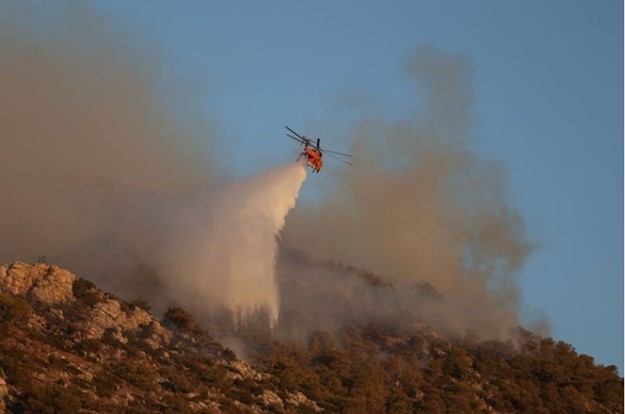
EU Handles Record Number of Extreme Weather Responses Amid Rising Climate Threats
The European Union has coordinated an unprecedented number of emergency responses to extreme weather events this year, as climate change accelerates the frequency and intensity of disasters across Europe, the fastest-warming continent globally. Wildfires and other natural disasters have surged, prompting the EU to activate its civil protection mechanism a record 31 times so far in 2024—exceeding the previous year's total of 23.
Europe's fire season, traditionally spanning from June to September, is now lengthening due to climate change. The rising temperatures and prolonged dry conditions have fueled more destructive fires, starting earlier and affecting larger areas of land. To support EU members and neighboring nations, the EU oversees and finances the deployment of firefighting aircraft, medical teams, and other resources through its civil protection mechanism.
This year, the EU has coordinated responses to 19 wildfires, surpassing previous records dating back to 2007. Notably, in August, firefighting planes were sent to Albania, Greece, and Madeira, with earlier interventions in Bulgaria and North Macedonia. Greece alone faced over 3,500 fires by mid-August, a nearly 50% increase from the same period in 2023.
In response to the escalating crisis, the EU has significantly expanded its reserve fleet, now boasting 28 firefighting planes and four helicopters—more than double the capacity in 2022. This growing capacity aims to combat increasingly severe wildfires, especially in southern Europe, where extreme heat and dry conditions have become more common. Orders for the first EU-owned firefighting planes are also underway, with delivery expected from 2027.
Ben Clarke, a climate researcher at the Grantham Institute, warns that prolonged heatwaves and low rainfall have created "tinderbox conditions" in many parts of Europe, making fire-prone regions even more vulnerable. The EU has already stationed over 500 firefighters in high-risk areas, including Greece and Spain, ahead of the summer season, reflecting the growing need for preparedness as climate-induced disasters become the norm.
This surge in emergency responses highlights the urgent need for more robust climate action and disaster management across Europe.